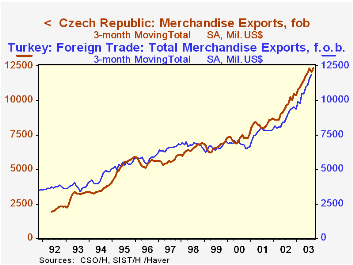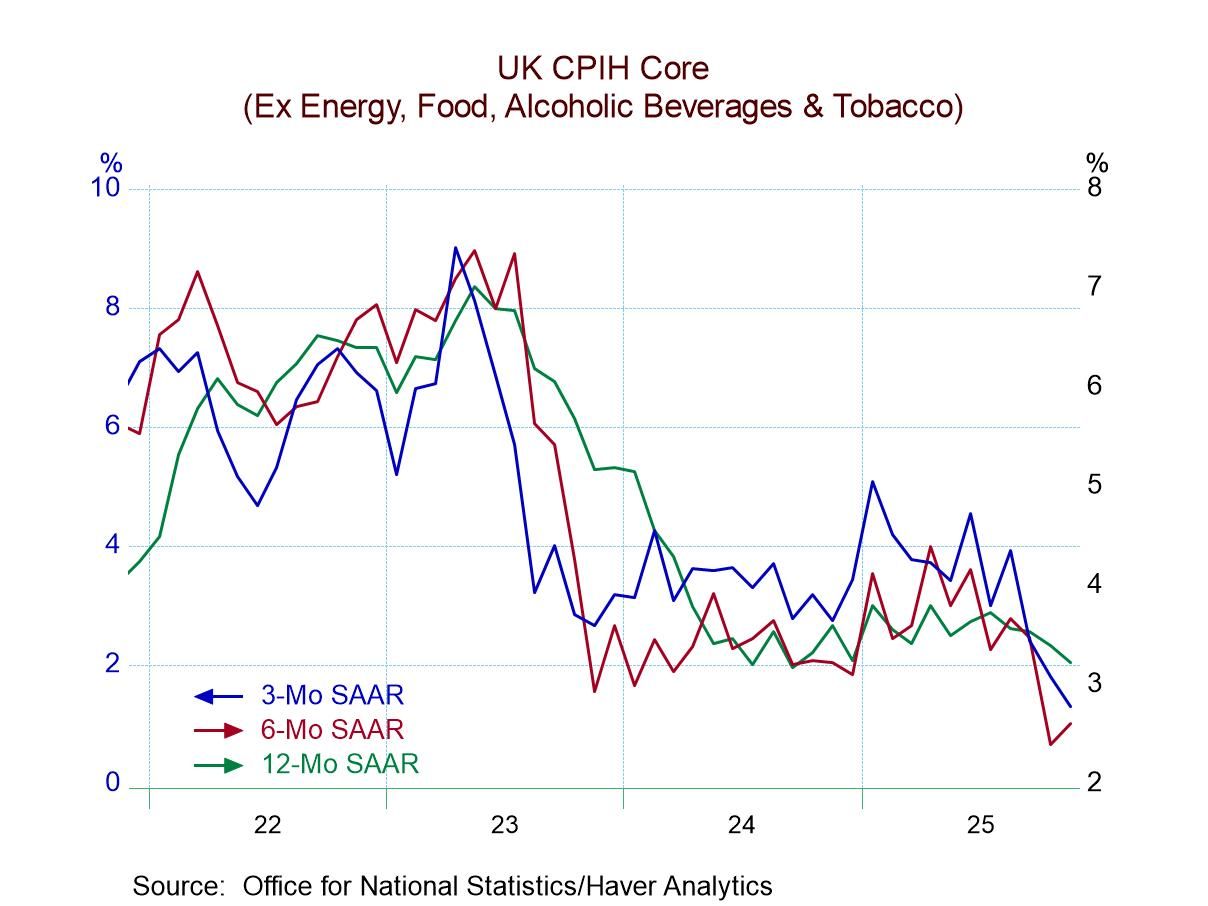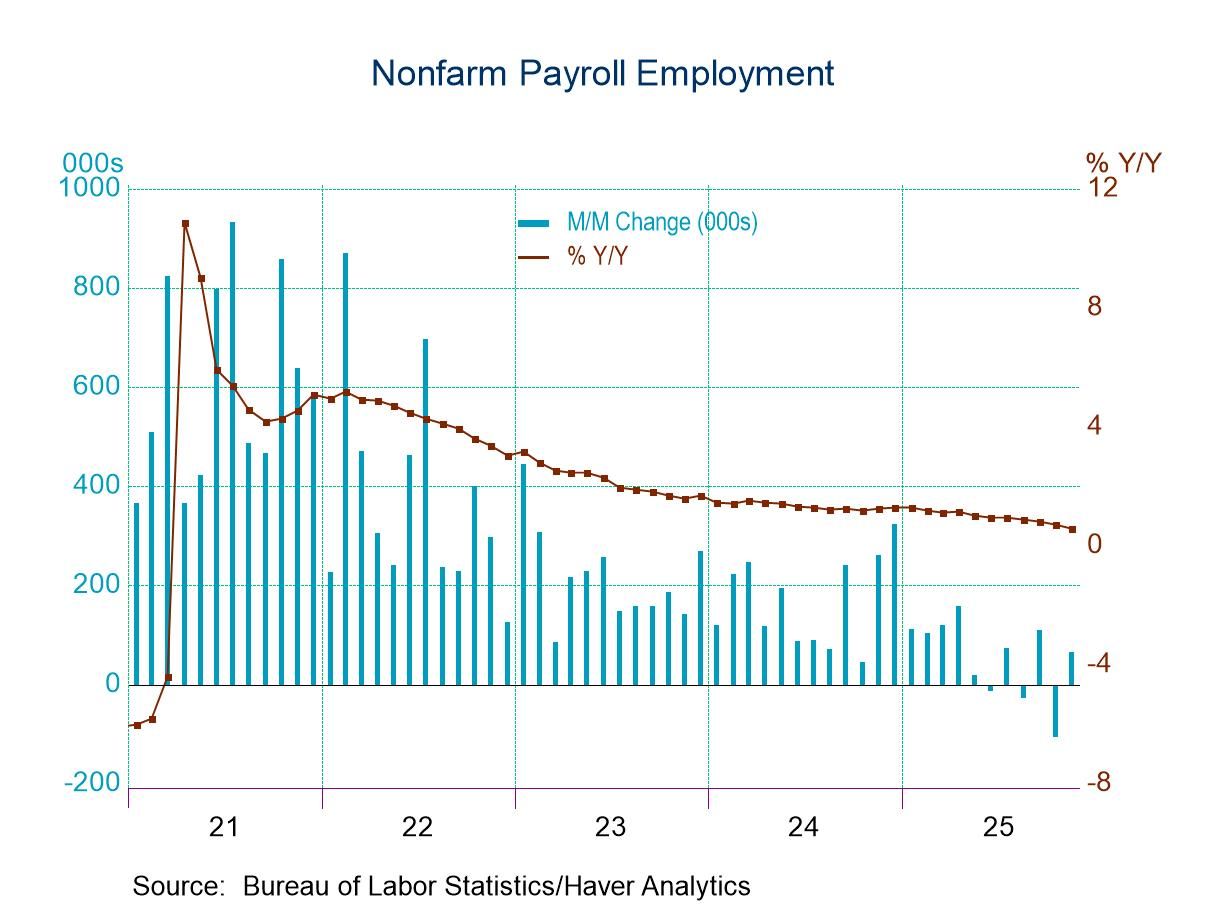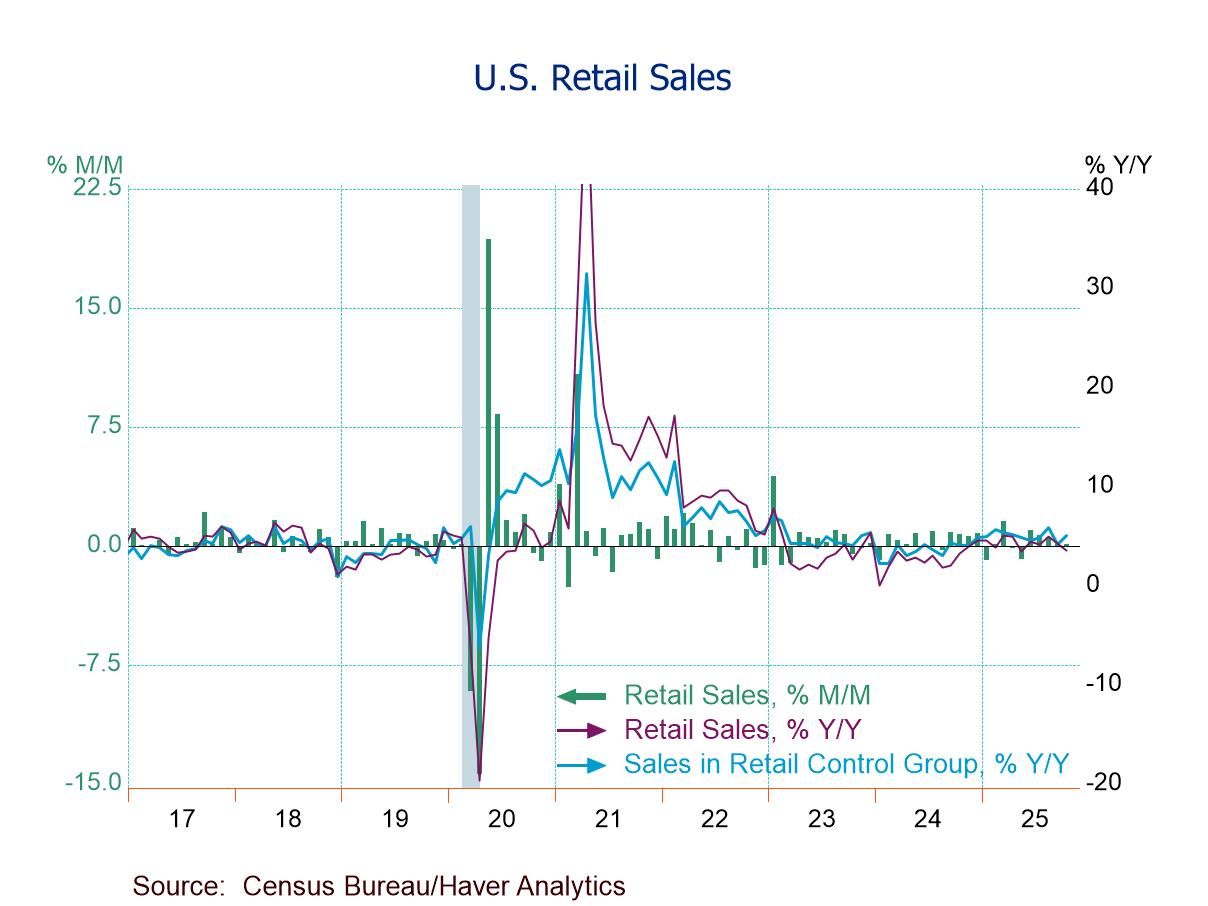 Global| Oct 22 2003
Global| Oct 22 2003Foreign Trade Active in "Transition" Economies
Summary
Trade balances in three emerging countries, Poland, the Czech Republic and Turkey, which all reported data today, have been fairly stable in recent months. But those nations, which all have very "open" economies, are showing strong [...]

Trade balances in three emerging countries, Poland, the Czech Republic and Turkey, which all reported data today, have been fairly stable in recent months. But those nations, which all have very "open" economies, are showing strong growth in both exports and imports.
Of these, Turkey, interestingly, has the largest economy, with GDP in Q2 of $58.7 billion (quarterly rate). Its merchandise trade accounts have seen deficits of $1.7 billion each in July and August. While this might be interpreted as a deterioration from $1.0 billion in August 2002, the huge 25.2% year-on-year growth in exports would suggest that a trade imbalance is not one of Turkey's main problems. Imports are growing as rapidly though, 26.2% in August over August 2002. These merchandise trade flows represent roundly 20%-25% of Turkey's GDP.
In Poland, the trade deficit inched wider in August to $1.5 billion from $1.3 billion in July and $1.1 billion in August 2002. Poland's exports softened in August, breaking a string of 12-month advances running 25%-40%. Imports also slowed, with "only" 10.1% growth in August, following 20.4% in July and as much as 30% in May. Poland's GDP is about 10% smaller than Turkey's, and its trade flows constitute a somewhat larger portion of GDP than in Turkey, thus indicating that more industrialized Poland is a more open economy than Turkey.
However, it is the Czech Republic's economy that is the most interactive with the rest of the world, as exports and imports both account for more than half of GDP. Trade is nearly in balance there, with a mere $400 million trade deficit in September, following $100 million in August. For the third quarter as a whole, exports and imports were both up about 20% from a year ago. GDP is the smallest of these three countries, "just" $21.4 billion in the second quarter, but exports are about the same size as those of the other two nations. Imports are only marginally smaller. Thus, while it has the smallest GDP of these nations, its active trade with other countries is likely one reason it also has the highest standard of living among these nations: $5,700 of per capita real GDP in 2002, compared with $4,325 in Poland and roughly $3,000 for Turkey.
| All figures in billions of US$ (except where noted) | GDP (Q2'03) | August 2003||||
|---|---|---|---|---|---|
| Exports | Imports | ||||
| Value | Y/Y | % of GDP | Value | Y/Y | % of GDP |
| Turkey | $58.7 | $11.8* | 25.2% | 18.8% | $16.9* | 26.7% | 27.7% | |
|---|---|---|---|---|---|---|---|---|
| Poland | $52.4 | $10.5* | 1.6% | 25.8% | $15.1* | 10.1% | 31.9% | |
| Czech Republic | $21.4 | $12.4** | 20.7% | 56.1% | $13.1** | 19.6% | 58.8% |
Carol Stone, CBE
AuthorMore in Author Profile »Carol Stone, CBE came to Haver Analytics in 2003 following more than 35 years as a financial market economist at major Wall Street financial institutions, most especially Merrill Lynch and Nomura Securities. She had broad experience in analysis and forecasting of flow-of-funds accounts, the federal budget and Federal Reserve operations. At Nomura Securities, among other duties, she developed various indicator forecasting tools and edited a daily global publication produced in London and New York for readers in Tokyo. At Haver Analytics, Carol was a member of the Research Department, aiding database managers with research and documentation efforts, as well as posting commentary on select economic reports. In addition, she conducted Ways-of-the-World, a blog on economic issues for an Episcopal-Church-affiliated website, The Geranium Farm. During her career, Carol served as an officer of the Money Marketeers and the Downtown Economists Club. She had a PhD from NYU's Stern School of Business. She lived in Brooklyn, New York, and had a weekend home on Long Island.





